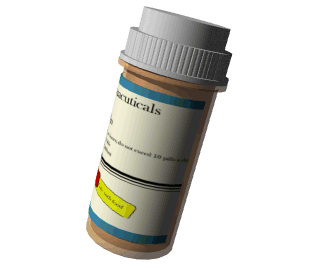- Jarvisburg Elementary School
- Medications
Nurse- Stacy Curran, RN
Page Navigation
-
Welcome to the Health Office
 Medications at schoolNorth Carolina General Statute 115C-307 states that "school employees may administer medications at school prescribed by a doctor upon written request of the parents". Currituck County Schools are required to be in compliance with the statute and have established a medication policy which gives detailed information regarding administration of medication at schools. The policy is located on the website and in the student handbooks.When a child requires any medication at school, a consent for permission to administer medications must be completed by the physician and the parent and the consent must be filed at school. A consent is required for any medication including an over the counter medication (such as Tylenol) and any prescription medication. Prescription medications must be in a container labeled by the pharmacist and the first dose must be given at home to avoid having an adverse reaction at school. Over the counter medications must be in the original container to insure accuracy with administration. Controlled substances should be brought to the school by the parent/guardian and should never be brought to school by the student. Consents for administration of medication are available in the school office and the health office. Medications consents will soon be available on Currituck County Schools website. To avoid delays in administration of medication at school, the consent to administer medication should be provided to the school when the medication is brought to school. When the consent is not completed, the form must be taken to the health care provider for completion or faxed to the provider. Many times there are delays in the return of the consent to the school, which may delay administration of medication at school. To avoid these delays, we suggest that you pick up a form and keep in readily available for any visit to a health care provider.I hope this information is helpful and I encourage you to contact the School Nurse if you have any questions regarding administration of medications at school.At the beginning of the school year, a letter is sent home with information about Asthma Action Plans, Seizure and Diabetic Care plans, and medication forms. If you have health concerns about your child, please share them with your school nurse.
Medications at schoolNorth Carolina General Statute 115C-307 states that "school employees may administer medications at school prescribed by a doctor upon written request of the parents". Currituck County Schools are required to be in compliance with the statute and have established a medication policy which gives detailed information regarding administration of medication at schools. The policy is located on the website and in the student handbooks.When a child requires any medication at school, a consent for permission to administer medications must be completed by the physician and the parent and the consent must be filed at school. A consent is required for any medication including an over the counter medication (such as Tylenol) and any prescription medication. Prescription medications must be in a container labeled by the pharmacist and the first dose must be given at home to avoid having an adverse reaction at school. Over the counter medications must be in the original container to insure accuracy with administration. Controlled substances should be brought to the school by the parent/guardian and should never be brought to school by the student. Consents for administration of medication are available in the school office and the health office. Medications consents will soon be available on Currituck County Schools website. To avoid delays in administration of medication at school, the consent to administer medication should be provided to the school when the medication is brought to school. When the consent is not completed, the form must be taken to the health care provider for completion or faxed to the provider. Many times there are delays in the return of the consent to the school, which may delay administration of medication at school. To avoid these delays, we suggest that you pick up a form and keep in readily available for any visit to a health care provider.I hope this information is helpful and I encourage you to contact the School Nurse if you have any questions regarding administration of medications at school.At the beginning of the school year, a letter is sent home with information about Asthma Action Plans, Seizure and Diabetic Care plans, and medication forms. If you have health concerns about your child, please share them with your school nurse.
 Frequently as parents we have to decide when our child is "sick enough" to stay home instead of attending school. The following information will be helpful to you when you need to make a decision regarding attendance at school. If your child has any of the following conditions they should not attend school that day:1. Fever (temperature of 100.0 or greater). When we are ill, our bodies will increase body temperature to fight the infection. Unfortunately, it is the time in which we are the most contagious and spread the illness to others.
Frequently as parents we have to decide when our child is "sick enough" to stay home instead of attending school. The following information will be helpful to you when you need to make a decision regarding attendance at school. If your child has any of the following conditions they should not attend school that day:1. Fever (temperature of 100.0 or greater). When we are ill, our bodies will increase body temperature to fight the infection. Unfortunately, it is the time in which we are the most contagious and spread the illness to others.
2. Vomiting. Many times vomiting is due to a viral illness which can be easily transmitted to others, therefore students should not attend school.
3. Diarrhea is loose foul smelling bowel movement which can be caused by a virus and can also be easily spread to other people.
4. Conjunctivitis (Pink eye) is a condition that can be caused by allergies, viruses, irritants, or bacteria. Your family doctor needs to examine your child to determine the cause of the conjunctivitis. Bacterial conjunctivitis is contagious and must be treated promptly to prevent spreading of the infection to you, family members and others.
5. Strep infections symptoms may appear suddenly and include sore throat, fever, general feeling of illness, redness, and swelling in the throat. If your child has been diagnosed with strep, he/she should not attend school until they have had at least 24 hours of antibiotic therapy.6. Parasitic infections - these include ringworm, scabies, and head lice. Both ringworm and scabies must be treated for at least 24 hours before returning to school. Additionally, any child that has head lice must be treated and have all nits removed from the hair before they can return to school. The student must also be checked by the school nurse before they can return to class.
Although the list is not all inclusive, it covers the majority of illness seen in the school setting. The faculty and staff encourage students to attend school every day, but recognize that sometimes children are not able to attend school. I hope this information is useful and I encourage you to contact me for concerns or questions.
Last Modified on August 24, 2022

